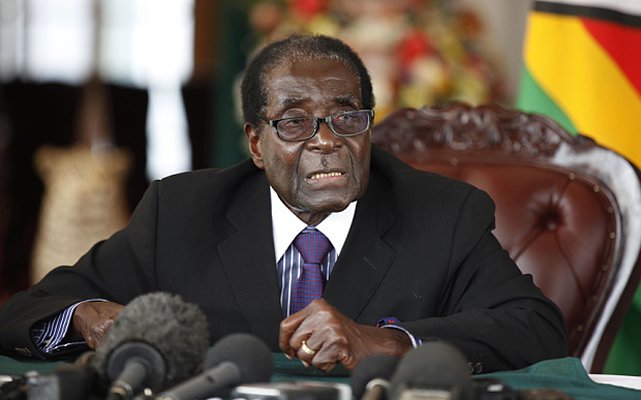SA pull-out sends bold message to ICC

Nduduzo Tshuma, Political Editor
A recent announcement by South Africa on the country’s intention to pull out of the International Criminal Court (ICC) sent shockwaves in the international system but more importantly represented a bold stance by Africa on the compromised supranational court.
Before South Africa’s Instrument of Withdrawal on October 19 from the Roman Statute that gave birth to the ICC in 2002, Burundi and Gambia had announced their pull out. Kenya, Namibia and Uganda are also set to follow suit soon.
The African countries have accused the ICC of bias and targeting African leaders who are accused or perceived to be a threat of acting against the interests of the western countries.
South Africa said it found that its obligations with respect to the peaceful resolution of conflict at times are incompatible with the interpretation given by the ICC.
However, more specifically, Gambia accused the ICC of racial bias and targeting African leaders.
“The ICC, despite being called International Criminal Court, is in fact an International Caucasian Court for the persecution and humiliation of people of colour, especially Africans,” said Gambian Information Minister Sheriff Bojang.
“There are many Western countries, at least 30, that have committed heinous war crimes against independent sovereign states and their citizens since the creation of the ICC and not a single Western war criminal has been indicted.”
The moves by the African countries to pull out of the ICC follow years of protestations by President Mugabe who argued that the supranational court was a court for Western countries dispensing Western injustice on Africans.
“They committed crimes, colonial crimes galore the slaughter of our people and all that imprisonment. I have a case, why was I imprisoned for 11 years? We forgave them, but perhaps we’ve not done ourselves justice. There should be justice for all. You set up the ICC, we set our ICC to try Europeans, to try Mr Bush and Mr Blair,” said President Mugabe in June last year.
It is under these circumstances that the looming exodus by African countries from the ICC should be hailed as they cannot continue being part of a system that is used by powerful western nations to pursue their respective interests.
The United States and its allies have committed serious human right abuses in their pursuit of self-interest with immediate examples being the 2003 invasion of Iraq over “suspicions” that it was in possession of weapons of mass destruction yet the real aim was to over throw the government of Saddam Hussein and tap the country’s oil.
The conduct of NATO in Libya, 2011 was protested by countries with India saying that the joint forces were acting as the air force of the rebel forces. The airstrikes also killed a lot of civilians but the countries in the NATO used their “might” to escape censure.
What is apparent is that the Western countries are prepared to breach international law in pursuit of their interests and on top of that manipulate international organisations like the ICC and even the United Nations itself either for justifying their actions or cleaning their mess.
It is ironic that successive administrations in the US have not ratified the Roman Statute and remain a non member of the ICC yet it claims to be the paragon of justice in the world.
Instead George Bush’s administration went on to enter bilateral agreements popularly known as “Article 98 agreements” with states under ICC not to surrender US citizens to the ICC. US constitution also outlaws the provision of material assistance to the ICC in its investigations, arrests, detentions, extraditions, or prosecutions of war crimes.
The hypocrisy of the US is laid bare here and that the ICC exists as an instrument to further western political agenda is beyond doubt.
Perhaps the greatest revelation of the extent that the ICC has been compromised by the powerful western countries was during a key note address by ICC Second vice president, Dr Hans-Peter Kaul at the Salzburg Law School on International Criminal Law in Austria on August 11, 2011.
In his address, Dr Kaul, a former German Ambassador said there was a tendency by some powerful states to use the ICC as an instrument to further their politics.
“There is a further phenomenon, a further challenging reality which can affect the Court‘s international position or make its work the subject of international debate or even controversy: this concerns the temptation for some States, including powerful States and permanent members of the Security Council to somehow instrumentalise the Court, to use it for their political purposes and interests,” he said.
“As a former German Ambassador, who is now a judge and vice president of the ICC I am neither blind nor naïve in this regard.”
Dr Kaul went on to mention three “less positive elements and circumstances” around the ICC where powerful nations made decisions on behalf of the ICC without even consulting the organisation.
One of the decisions was on the Libya investigation after resolution 1970 by the UN Security Council which referred the Libyan issue to the ICC, a resolution backed by the United States despite the fact that it is not a member of the ICC as it has refused to ratify the Roman Statute.
“The entire financial burden of the Libya investigation and ICC work was again put on the ICC, its States Parties and not on the UN — and you can imagine how this has affected our budgetary planning for 2011/2012.
“Second, nationals of non-states parties, for example US nationals, were exempted from ICC jurisdiction, with exactly the same provisions, as used in SC resolutions adopted during the Bush Administration,” said Dr Kaul.
“Finally the court, its presidency was not consulted at all, was not even informed as a courtesy measure before this referral — and we will have to come back to this and are encouraged to do so for example also by Kofi Annan.”
In the clearest illustration of the vulnerability of the ICC, Dr Kaul went on, “What I want to say through this is simple but important: what states, powerful states or the Security Council decide with regard the ICC cannot be held against the court.
“In such a situation, we are on the receiving side, just as any other international organisation. States, the Security Council, they continue to be the masters of the game. At the same time and we know this from experience lack of support or political moves by States which make the role of the ICC questionable or even controversial may lead to misunderstandings or even criticisms to which the Court, as a purely judicial, neutral and non-political institution, cannot really respond.”
In the ultimate, the withdrawal from the ICC should be a starting point of Africa finally finding its voice and rejecting institutions and agreements be they political, economic or any other designed to persecute Africans and further the oppression of the continent in different ways.









Comments